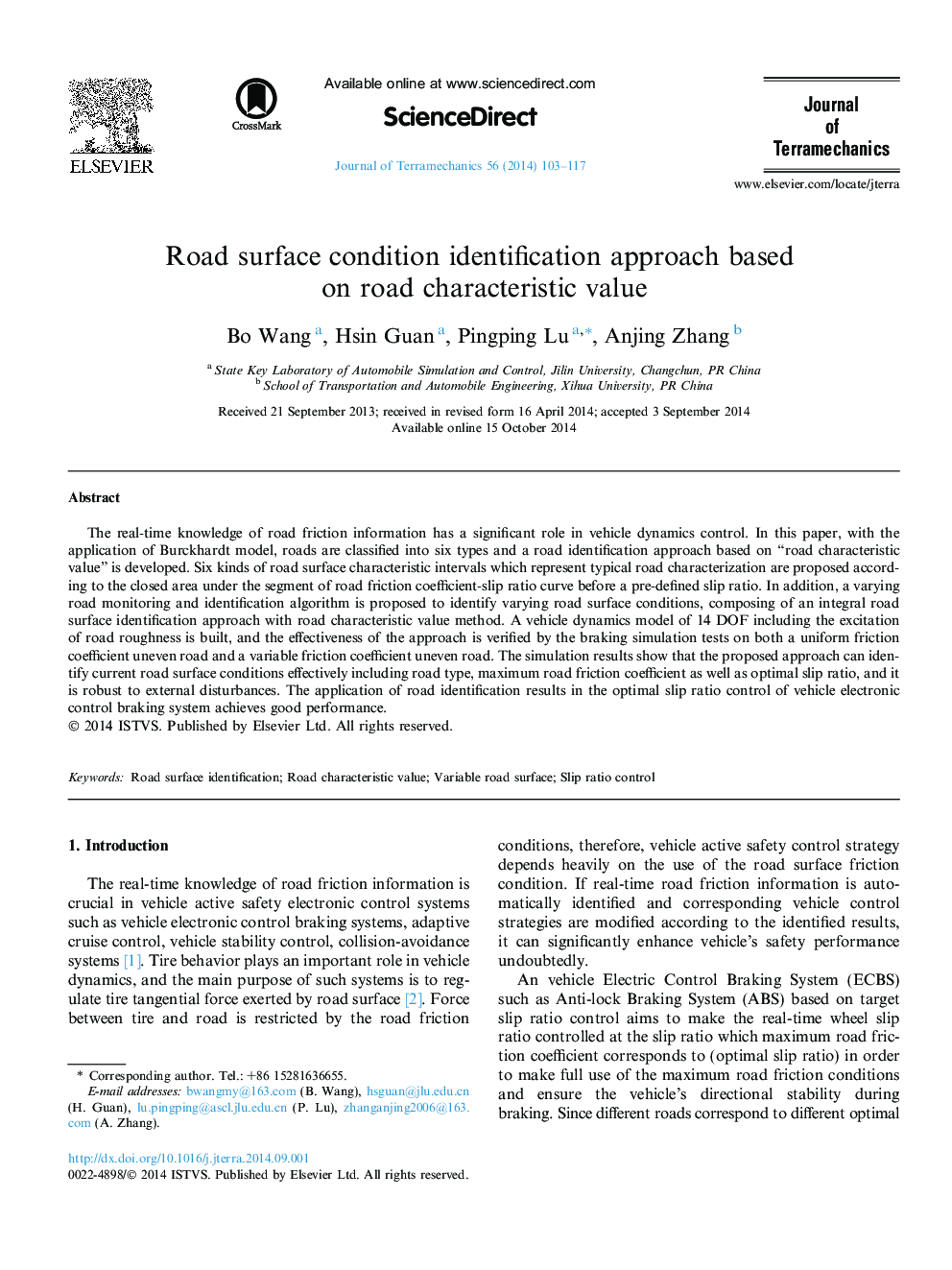| Article ID | Journal | Published Year | Pages | File Type |
|---|---|---|---|---|
| 799046 | Journal of Terramechanics | 2014 | 15 Pages |
•The proposed identification approach is robust to external disturbances.•This identification approach can effectively identify maximum road friction coefficient.•The influence of road roughness on road identification has been taken into account.•The proposed road identification approach does not need extra sensors.•One of advantages of this approach is the low computation effort for identification.
The real-time knowledge of road friction information has a significant role in vehicle dynamics control. In this paper, with the application of Burckhardt model, roads are classified into six types and a road identification approach based on “road characteristic value” is developed. Six kinds of road surface characteristic intervals which represent typical road characterization are proposed according to the closed area under the segment of road friction coefficient-slip ratio curve before a pre-defined slip ratio. In addition, a varying road monitoring and identification algorithm is proposed to identify varying road surface conditions, composing of an integral road surface identification approach with road characteristic value method. A vehicle dynamics model of 14 DOF including the excitation of road roughness is built, and the effectiveness of the approach is verified by the braking simulation tests on both a uniform friction coefficient uneven road and a variable friction coefficient uneven road. The simulation results show that the proposed approach can identify current road surface conditions effectively including road type, maximum road friction coefficient as well as optimal slip ratio, and it is robust to external disturbances. The application of road identification results in the optimal slip ratio control of vehicle electronic control braking system achieves good performance.
